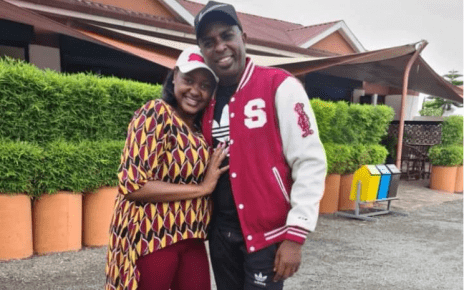Kenya was recently thrown into mourning after a horrific road accident in Murang’a claimed the lives of 13 members of the same family. The tragedy shocked the nation, with images of grieving relatives and devastated villagers reminding Kenyans of the fragility of life. Yet, amidst the collective sorrow, an incident emerged that stirred even deeper emotions — a coffin seller publicly celebrated the accident, seeing it not as a tragedy but as an opportunity for business.
The Murang’a accident was not just another statistic on Kenya’s dangerous roads; it represented the wiping out of an entire lineage in one cruel moment. Families were left broken, children orphaned, and a community plunged into grief. Funerals in such circumstances are not only emotionally heavy but also financially draining, often requiring the collective effort of extended families, neighbors, and well-wishers.

It is against this backdrop of national sorrow that the coffin seller’s remarks struck raw nerves. By openly celebrating the deaths as a business “blessing,” she shattered the boundaries of empathy and decency. Her words symbolized a dangerous detachment from humanity, reducing human lives to commodities, and grief to profit margins. While business naturally thrives on demand, the celebration of death as a market opportunity violates fundamental moral codes.
The funeral industry, like healthcare, operates in a uniquely sensitive space where ethics must be balanced with commerce. Providers of coffins, hearses, and related services serve an essential role — helping families send off their loved ones with dignity. However, their work is not just transactional; it demands compassion, respect, and sensitivity. The coffin seller’s remarks blurred this line, turning an honorable profession into an opportunistic pursuit that disregarded human pain.
The backlash against the woman’s comments reflects society’s instinctive demand for empathy. Kenyans were united in their condemnation, with many calling her actions cruel, dehumanizing, and disgraceful. Social media became a tribunal of morality, reminding not just her but also other business owners that success without compassion is hollow and destructive.
This incident also forces a larger reflection: are we, as a society, losing our sense of humanity in the face of commerce? The coffin seller’s attitude, though extreme, mirrors a wider reality where material gain often overshadows human compassion. Whether in politics, business, or even daily interactions, the temptation to prioritize profit over people continues to erode values.
The Murang’a tragedy was already one of the darkest moments for the affected family, but the coffin seller’s insensitive remarks amplified the pain. Her actions remind us that while business is essential, humanity must always come first. Without empathy, society risks becoming a place where profit is celebrated even in the face of death. True leadership, true business, and true humanity lie not in taking advantage of tragedy but in standing in solidarity with those who suffer.



